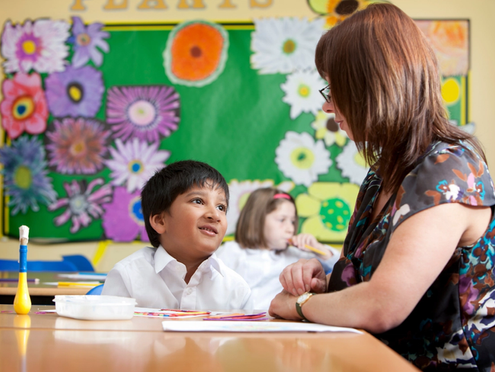Introduction
If your child’s first language isn’t English, you might be worried about how that will affect them at school. Children who speak EAL (English as an Additional Language) can struggle with the extra challenges that come with learning in another language. Not being a native speaker can make it harder for children to be confident speaking up in the classroom, as well as socialising with other kids in the playground – especially if there are only a few other EAL children at their school.
It’s important for your child to build up their confidence because it helps them do well at school, make friends and be happy people.
While there are extra challenges, being from a non-English speaking background certainly doesn’t mean your child can’t succeed at school.
There’s a big link between family support and a child’s success at school, so it's important that you support your child’s learning as much as you can. You may worry about your ability to help them with homework if you struggle to read English as fluently as your mother tongue, or find the English school system confusing as you haven’t gone through it yourself.
Don’t worry – there are many easy ways that you can help your child do their best at school.
Supporting your child's learning as an EAL family
1. Listen to your child read in English
This is a good thing to do together because your own language confidence doesn’t matter – the point is that they’re reading out loud to you. Your own English may even improve just by listening!
Talk about the story in more detail in your home language after they finish reading to encourage them to think more about the story without worrying about language.
2. Use the library
Libraries, in school and in your local community, make sure your child can always get new books for free. This is helpful if you don't have many English language books at home. Reading different types of books will improve their vocabulary and make reading more exciting.
3. Socialise with other families
Talking and playing informally is a great way for your child to develop their communication skills and feel more confident. Set up playdates with other children in their class so they have one-to-one practice outside of the classroom.
4. Don't be afraid to speak your native language at home
Speaking more than one language is good for children’s brain development - being bilingual is a great skill to have as an adult. Read books in your home language with your child or ask them to translate their homework for you so you can work through it together. As long as they’re still practising English too, speaking another language at home is only a positive thing for your child.
5. Make sure they get enough sleep
When your child goes to school, not only do they learn the curriculum of the classroom, but they also have to translate it all! This can be very tiring. Making sure your child gets enough sleep on a school night makes sure they can focus the next day. As well as this, sleep is important for learning languages - get lots of it!
6. Keep in touch with their teacher
It’s important for you to have a clear idea of how your child is doing in terms of their English, as well as their general schoolwork. If you have any concerns or questions, it’s best to talk directly with the teacher. They’re there to help.






